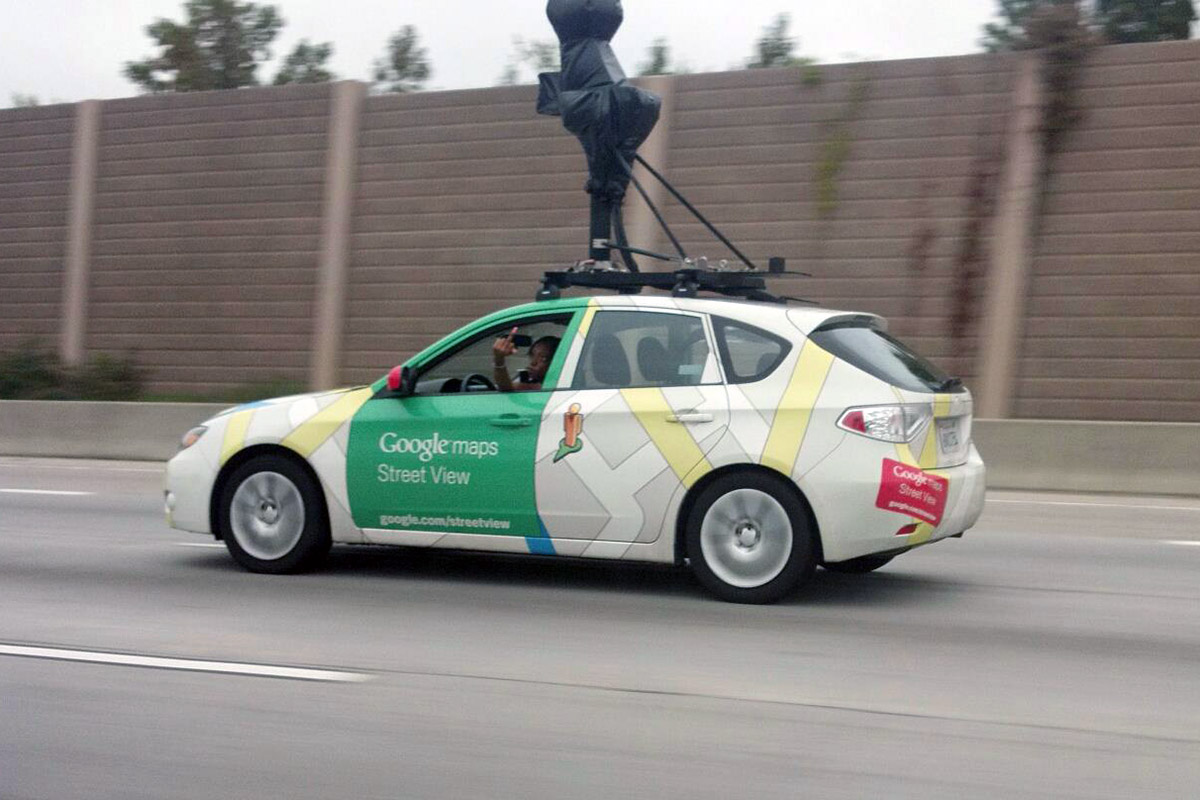[et_pb_section bb_built=”1″][et_pb_row][et_pb_column type=”4_4″][et_pb_text admin_label=”Blog Post” _builder_version=”3.19.5″ background_layout=”light”]
This week, The Guardian put out a scathing report on Google’s business practices, called “Google’s problem is that it now believes itself above others – even governments.” That descriptive title explains what it’s all about—the recent controversy over the data-collecting practices of Google Street View. Long story short, the FCC is investigating how Google illegally collected private data from homes and businesses over unsecured wireless networks when driving around the globe in their little cars with cameras on top (the “street view cars”).
The big shocker of the story isn’t the fact that Google stole confidential information from citizens—including entire emails, passwords, and web browsing history—but the fact that it was no accident.
The engineer who set up the data collection was aware.
The Street View team was aware.
The upper managers were aware, and consented, at least by merit of not intervening. More than half a terabyte of personal and private data was collected, intentionally.
Are you shocked? No? Neither are we.
Remember how years ago, you used to hear about how Google’s motto was “Don’t be evil”? That old bugaboo line will come to haunt Google for many, many years. You may notice that you haven’t heard this motto in a while. There are two simple reasons for this: 1) it’s not their official motto and never was, and 2) Google doesn’t even believe it anymore. The “Don’t be evil” philosophy certainly had the buy-in from management though; Google’s co-founders Larry Page and Sergey Brin included that exact phrase in an open letter they wrote when they first filed for IPO, commonly called the “Don’t Be Evil Manifesto.”
Here’s a highlight from that document:
“Don’t be evil. We believe strongly that in the long term, we will be better served… by a company that does good things for the world even if we forgo some short term gains.”
That was 2004; this is 2012. How far they’ve come.
What’s important to remember is that Google was founded as a company that built a search engine. Not the first search engine, but a better one. Their timing was perfect—they world wide web was just taking off, and the search engine space was fragmented. Users didn’t really “search” for things the way they do now. Instead, they would use “portals” like AOL, Excite, Earthlink and Yahoo. Google didn’t like what a lot of web companies were doing to their users, and they specifically set out to create a different (and better) user experience that avoided the annoying, or “evil,” practices employed by the competition.
It worked. Today, Google serves reportedly over 80% of all web searches. But there’s a big problem: since they took over as the dominant search engine, they’ve lost their focus. Now, instead of focusing on web search, they’ve diversified into other industries. While this is generally good practice when you specialize in just one thing, the way Google has done it is very strange. They’ve introduced complimentary products, such as an email client (Gmail) and a web browser (Chrome). But they’ve also tried to enter markets that they clearly don’t understand such as eCommerce (aka “Froogle”), Merchant Services (Google Checkout), Social Media (the disastrous “Orkut” Social Network, the defunct Google Buzz, and now Google Plus), Discount Coupons (Google Coupons), and location-based apps (Dodgeball). They even tried to invent new kinds of services that didn’t exist before, (Google Wave).
The end result is that Google is now a company that has lost all sense of identity. They’re trying to be all things to all men, and in the process, acting like lots of small, mediocre companies rather than one big, excellent company. Right now, Google’s trying to force a presence in these new industries:
- Computer Software (Android OS) and Hardware (Chromebooks)
- Cell Phone Software (Android) and Hardware (Motorola)
- Social Networks (Google Plus)
- Enterprise Email/Calendar/Contacts (Google Apps)
- GPS/Cartography (Google Maps)
- Cloud Storage (Google Drive)
- Daily Deals (Google Offers)
So what does this all mean? It means Google is now trying to directly compete with Apple, Microsoft, IBM, Dell, HP, Facebook, Twitter, Yahoo, Groupon and even Dropbox. Does that sound like a winning business model?
Google’s strategy doesn’t make any sense, and they’ve forgotten item #2 in their original credo, which said “It’s best to do one thing really, really well. We do search.” Well, they used to do search. But with all this diversifying, they don’t even do search really well anymore. Their search engine results pages (SERPs) are, still, full of spam, malware, and other junk. Not convinced? Just look at this Search Engine Land post showing the major security issues with SERPs even after the most recent major algorithm update (the “Penguin” update).
Google needs to take a chill pill and stop trying to carve out a business in every fledgling technology as soon as it bursts onto the scene. After all, they only made a breakthrough in online video when they finally gave up on Google Video years ago and broke down and bought YouTube. That was a smart move—they couldn’t do a better job with their own software, so they shuttered it and bought out their competitor. In my humble opinion, it’s time to see that kind of long-term thinking return to Google. I’d hoped that when Larry Page, the co-founder of the company, came back to the helm as CEO, it would return Google to its roots of being a “good” company that still believes point #1 from their official company philosophy: “Focus on the user, and all else will follow.”
It’s time Google starts focusing on the user again and expunging the dirty tricks and illegal behavior they used to criticize. Otherwise, the “don’t be evil” philosophy will go from being what it is now—the butt of jokes and eye-rolling—and become an outright lie.
[/et_pb_text][et_pb_text admin_label=”Footer Credit (Infront)” _builder_version=”3.19.5″ background_layout=”light” custom_padding=”10px|10px|10px|10px” border_width_all=”1px” border_color_all=”#444444″ border_style_all=”dotted” saved_tabs=”all” custom_margin=”|15px||15px” text_orientation=”center”]
Originally published at www.infront.com.
[/et_pb_text][/et_pb_column][/et_pb_row][/et_pb_section]

1 thought on “Is Google Evil?”